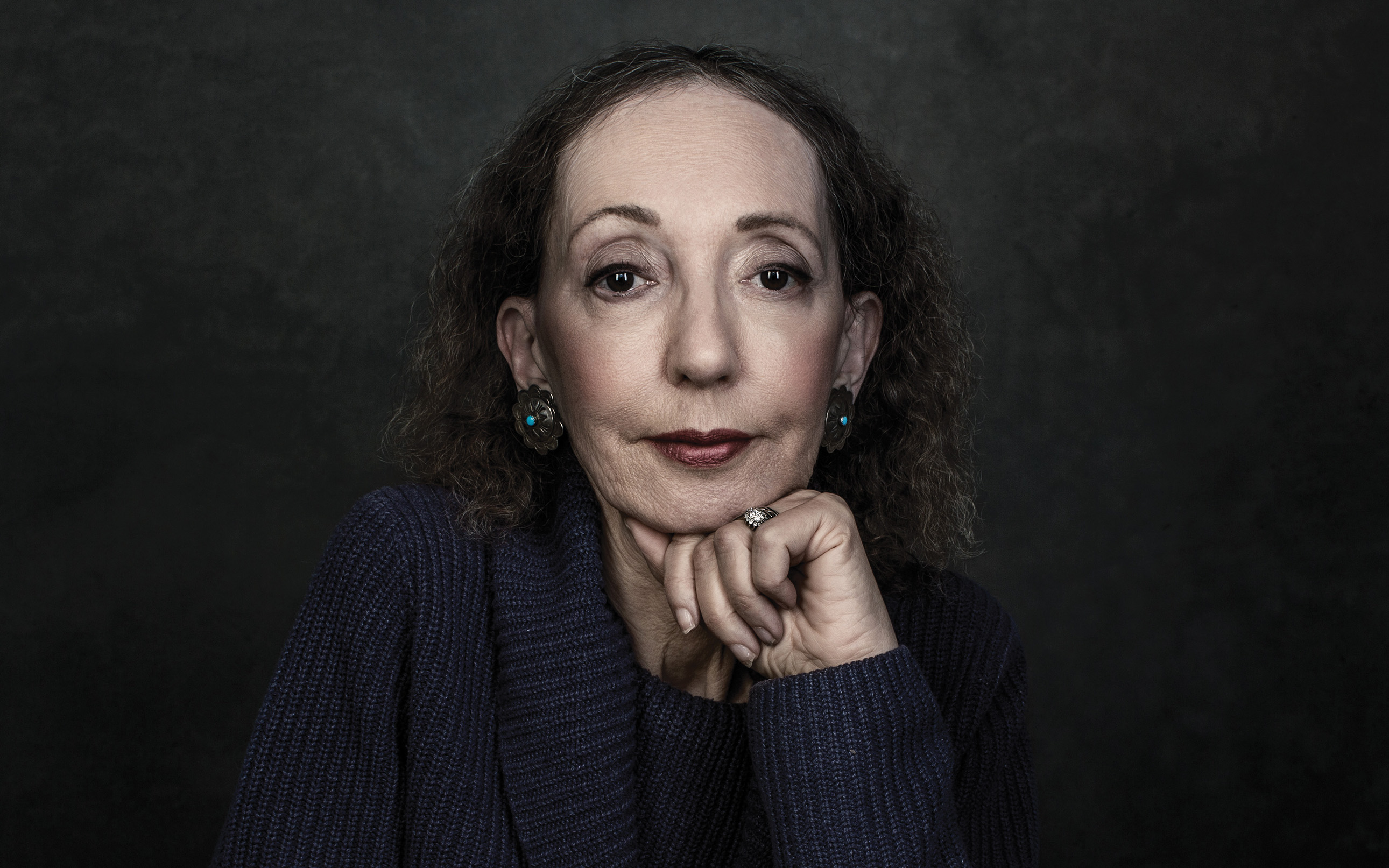 |
| Joyce Carol Oates (image source: Jewish Week) |
As far as inimitable serious novelists go, Joyce Carol Oates ranks right up there with Flannery O'Connor and James Joyce (the two that come to mind). And maybe Herman Melville. But his beard is way more stubby that Oates's wan piercing disposition.
At the New York Psychoanalytic Institute on 82nd street in the city Upper East Side, Lois Oppenheim interviewed Oates on Friday night (October 28th) as part of the Institute's conversation series.
Does Joyce Carol Oates Play?
Having paid the ten dollar student fee and considering myself interested in the intersection between literature and psychoanalysis (wherever that particular intersection will lead me — or one — I am not so sure), I sat myself down in the staid auditorium hall with a plastic glass of free cheap Cabernet Sauvignon.
Oppenheim began the conversation by commenting on how in an e-mail she had asked the author if she had wanted to "play" in Manhattan before the slated time she was supposed to speak at the Institute but then realizing that asking Joyce Carol Oates to play was probably the wrong word to use. Does Joyce Carol Oates play?
One would think not considering how much work she has produced since her first published book in 1963. She was born in 1938 (so that makes for about fifty years of literary output — about fifty books total).
I think Oates took offense to the question because she answered the question about "play" noting she loves to go to museums and view art as well as her teaching career which she considers playful (there is always laughter in the classroom). And there is the point Oppenheim missed that writing can be a form of play.
On Writing From Oates' Point of View
Oates spoke about the craft of writing, how the writer has the idea for a short story, novel, and so on, but the idea has to meet the limits of language. Writing is a process of falling short.
Oppenheim was interested in Oates's biography. Oates was molested as a girl. Her great grandparent was murdered. She spoke about the unspoken violence behind closed doors in the small town she lived in. Did the violence embedded in her background influence her writing and its emphasis on violence?
Oates seemed to resent the question. As if writing about violence, perhaps too much close attention to violence, automatically spoke about the writer's personality.
Oates seems to be a fiction writer not interested in people seeing her writing as an extension of Joyce Carol Oates. She would rather want people to see her writing as art, as an expansive testament to the human spirit.
Does Art Inspire Life Or Does Life Inspire Art?
The question of the evening was, "Is a writer's biography directly inferred by their writing, what they choose to write, what topics and themes they explore?" Does the writer write about herself or does she write about the universal stamp that makes us human, that makes us tick?
Oates made the remark that most writers write about themselves. Proust writes about himself. Phillip Roth writes about himself. Many writers write about themselves. Their stories are reflections of their own lives in some form or fashion.
Oates dismisses the idea that her writings are a mere byproduct of her own traumatic life. She wants to say, I think, that she is no different from anyone else. Most people on this planet, except maybe for the rarified individuals who inhabit the one percent of the world's first-class elite, experience suffering, and violence. She is no different. She writes about violence because it is something people experience.
The room was a bit electric. I loved hearing her speak. She spoke firmly yet not loudly. She seemed to project an aura of quite yet powerful (almost angry) intellectual power. In a certain sense, she is not the docile novelist. She would not be a good analysand, as I heard someone say after the discussion.
After the Interview, Oates Signed My Copy of Sourland
She signed my copy of Sourland. I told her I liked her short story "Dear Joyce Carol" published recently in her short story collection "Dear Husband,". Yes, the comma is included in the title.
She said I didn't look like a guy who would write her letters like the ones described in "Dear Joyce Carol." I think I agree with her. I have written letters to authors but never a series of letters like the ones described in this short story. Oates told me the story was inspired by real-life events. She said she has received letters like the one in the story many times. So maybe there is an element of biography ...
Maybe it is not so much that Oates writes about violence so she can talk about herself in a novel or story, but rather, what constitutes her as a person, as a novelist, as a serious writer, is one who attends to violence because it is immensely important. The novelist attends to the particular in the hopes of reaching for something profound. Is this not the paradox?
- Posted using BlogPress from my iPad
Location:247 E 82nd St., New York, NY
No comments:
Post a Comment
Be courteous. Speak your mind. Don’t be rude. Share.